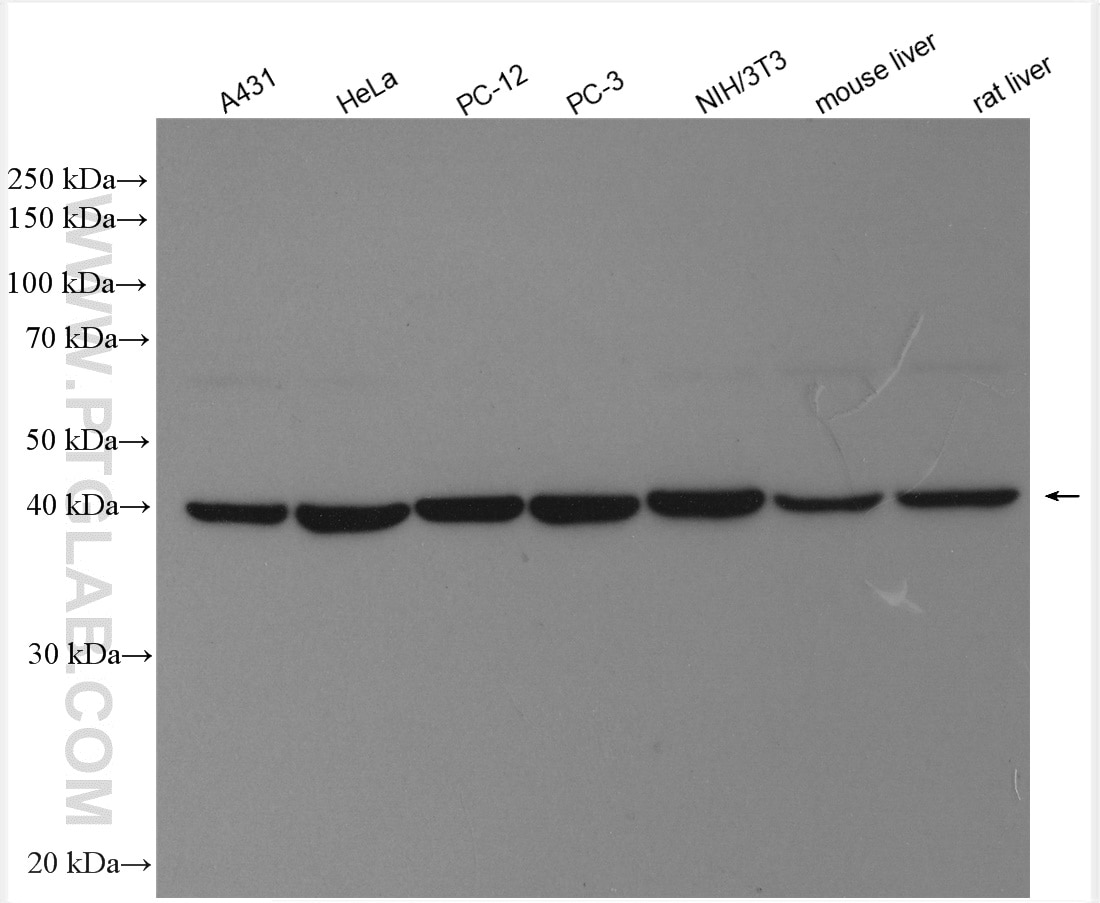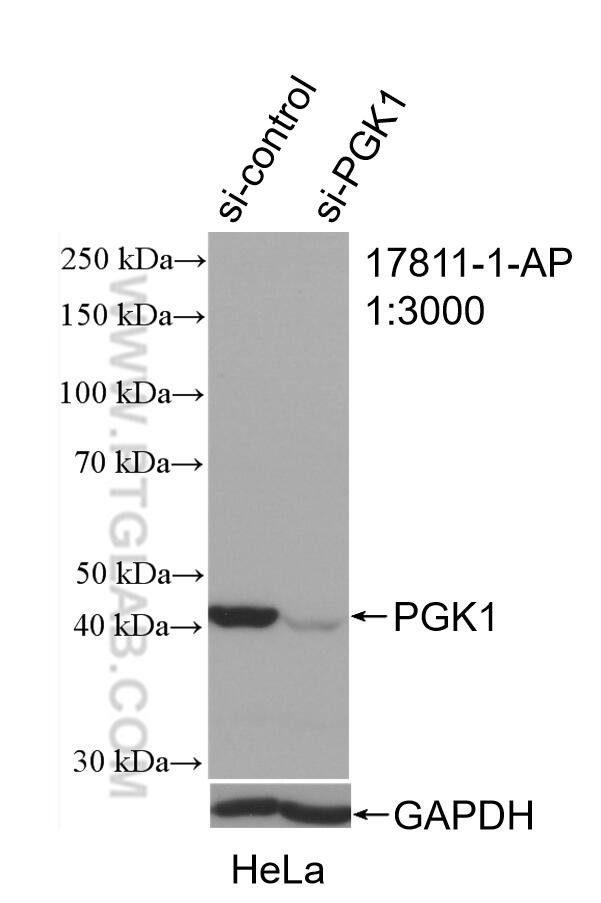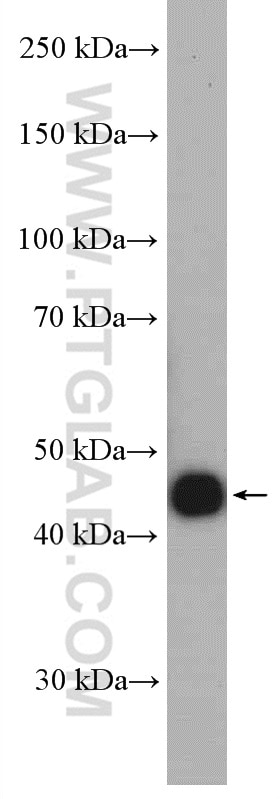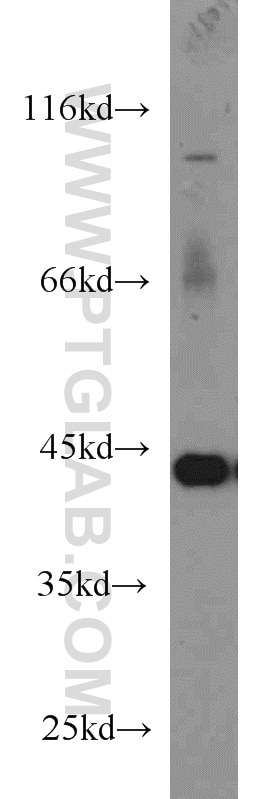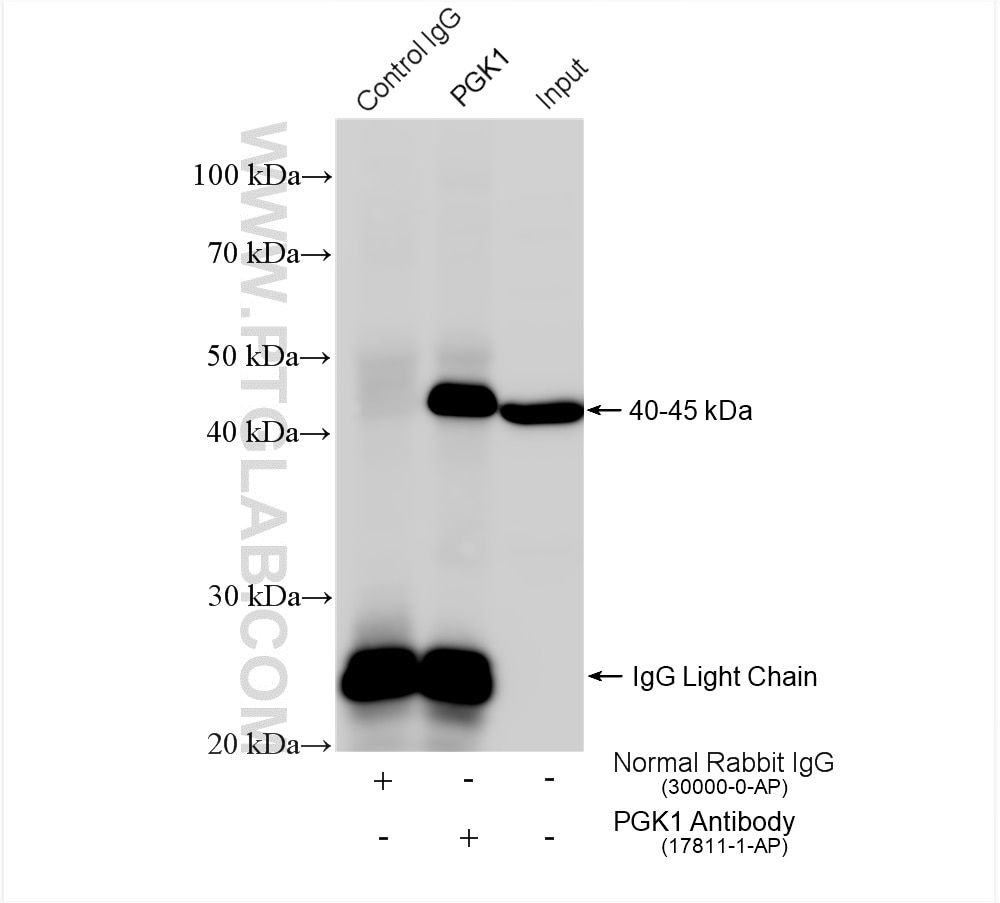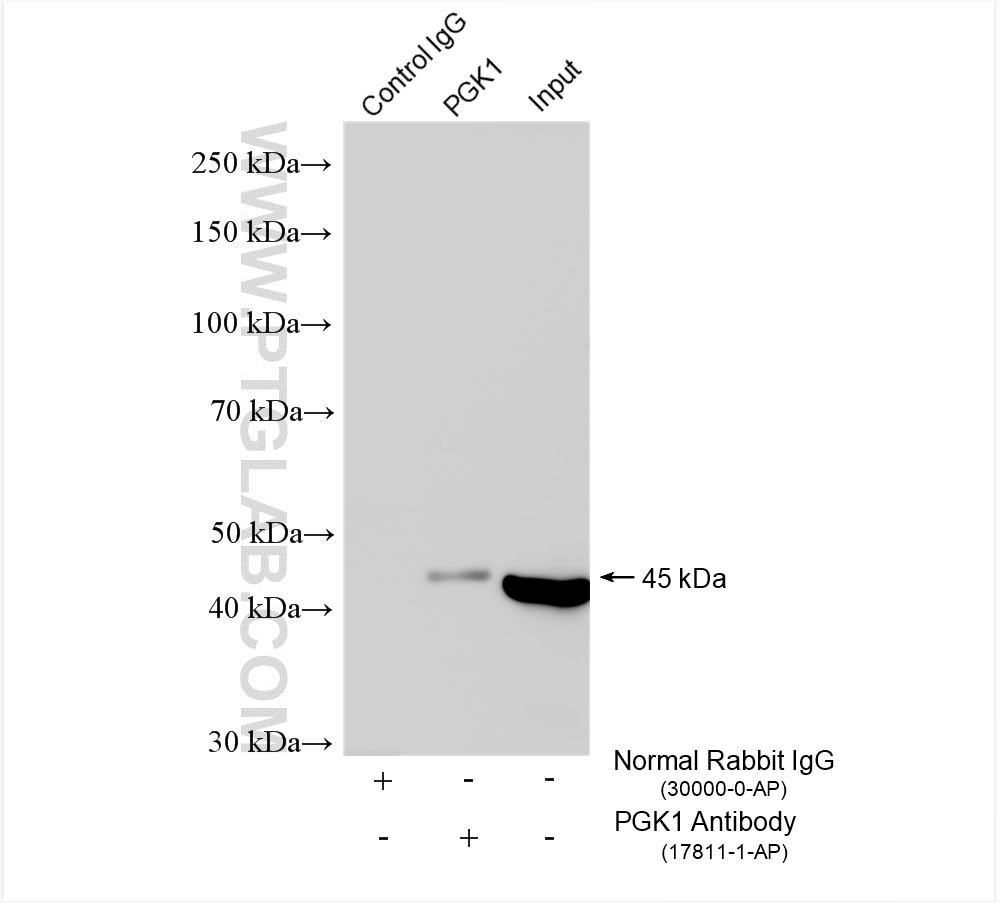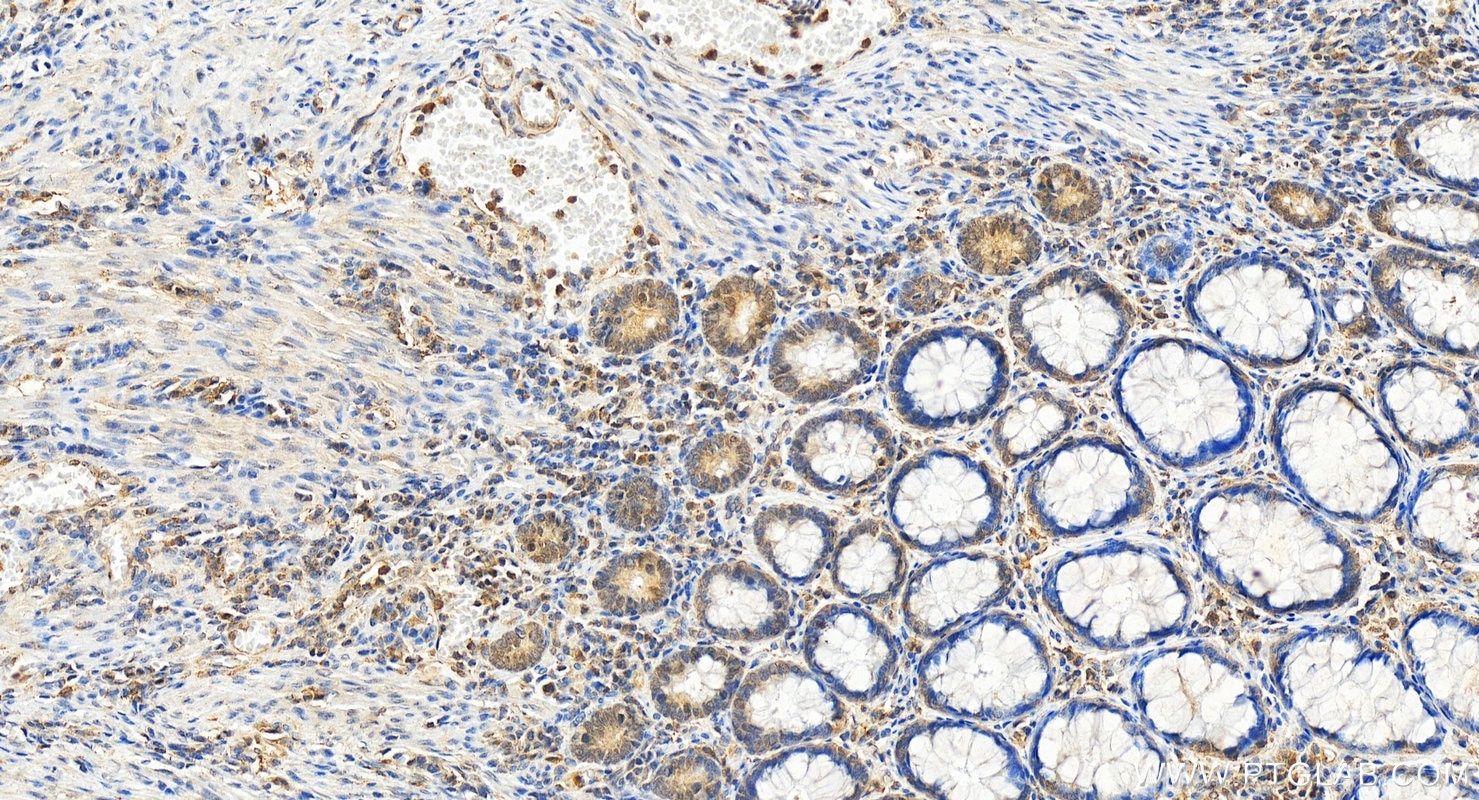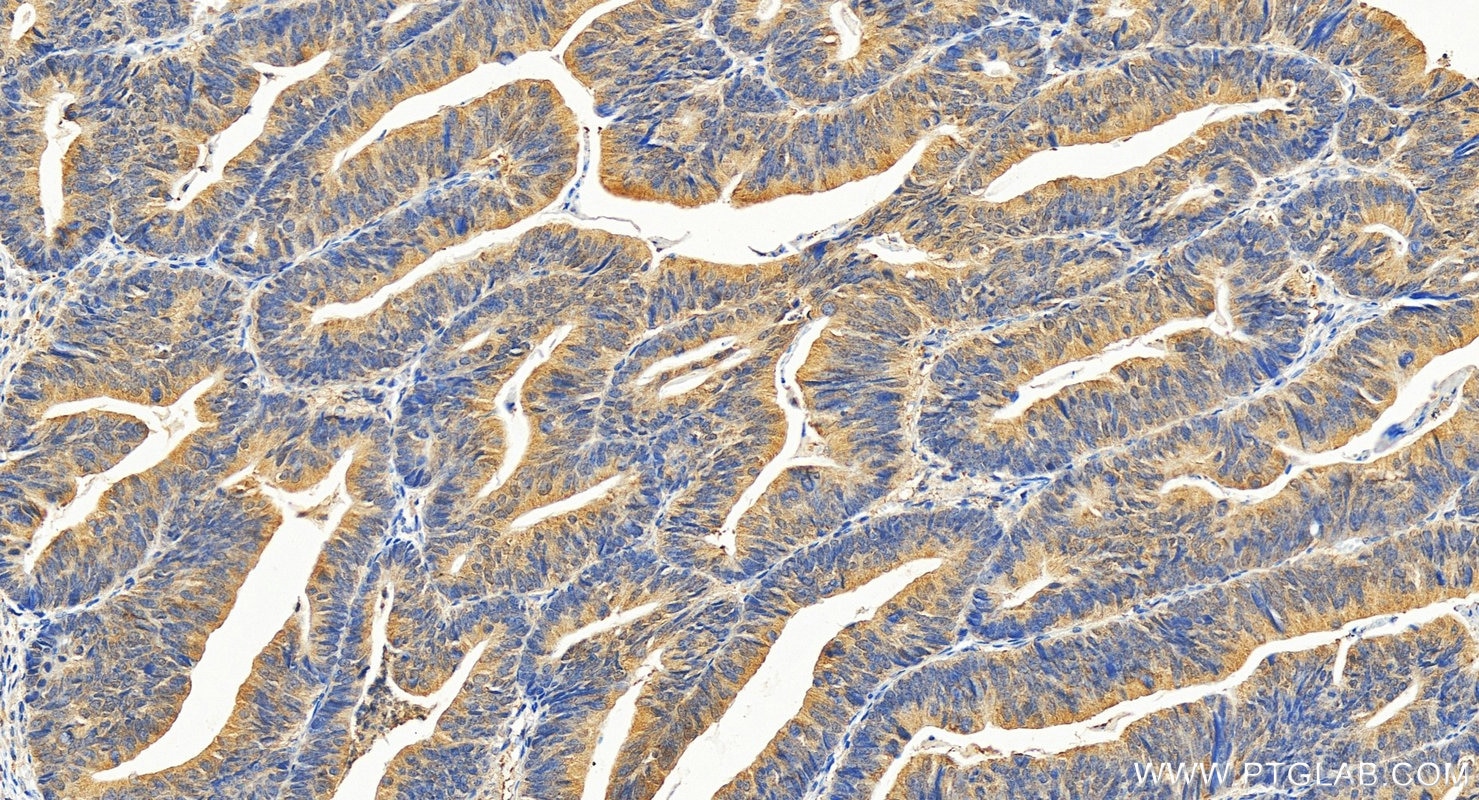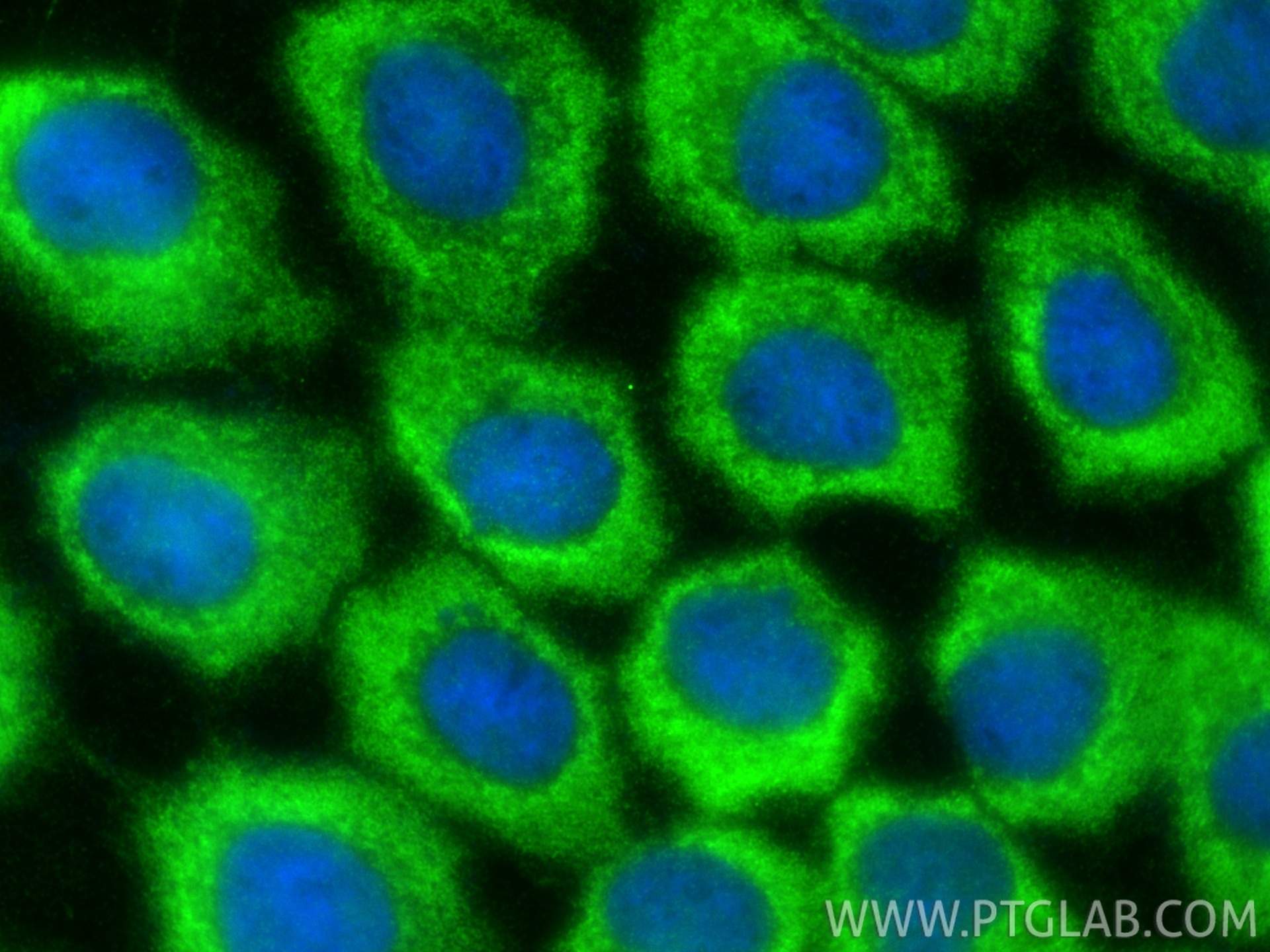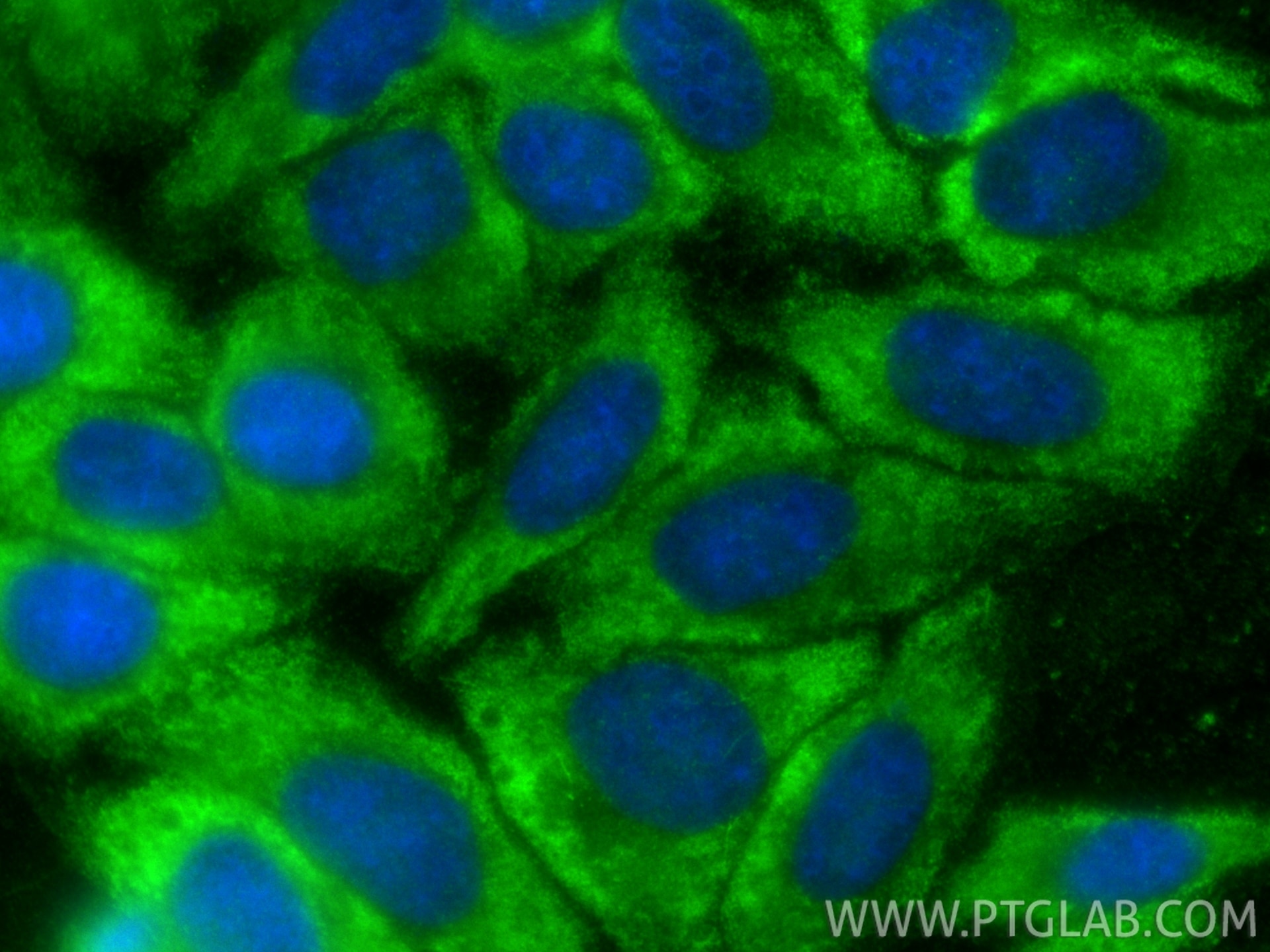- Phare
- Validé par KD/KO
Anticorps Polyclonal de lapin anti-PGK1
PGK1 Polyclonal Antibody for WB, IHC, IF/ICC, IP, ELISA
Hôte / Isotype
Lapin / IgG
Réactivité testée
Humain, rat, souris et plus (1)
Applications
WB, IHC, IF/ICC, IP, CoIP, ELISA
Conjugaison
Non conjugué
N° de cat : 17811-1-AP
Synonymes
Galerie de données de validation
Applications testées
| Résultats positifs en WB | cellules A431, cellules HEK-293, cellules HeLa, cellules HepG2, cellules NIH/3T3, cellules PC-12, cellules PC-3, tissu hépatique de rat, tissu hépatique de souris |
| Résultats positifs en IP | cellules SW-1990, cellules HeLa |
| Résultats positifs en IHC | tissu de cancer du côlon humain, il est suggéré de démasquer l'antigène avec un tampon de TE buffer pH 9.0; (*) À défaut, 'le démasquage de l'antigène peut être 'effectué avec un tampon citrate pH 6,0. |
| Résultats positifs en IF/ICC | cellules A431, cellules HepG2 |
Dilution recommandée
| Application | Dilution |
|---|---|
| Western Blot (WB) | WB : 1:5000-1:50000 |
| Immunoprécipitation (IP) | IP : 0.5-4.0 ug for 1.0-3.0 mg of total protein lysate |
| Immunohistochimie (IHC) | IHC : 1:1000-1:4000 |
| Immunofluorescence (IF)/ICC | IF/ICC : 1:200-1:800 |
| It is recommended that this reagent should be titrated in each testing system to obtain optimal results. | |
| Sample-dependent, check data in validation data gallery | |
Applications publiées
| KD/KO | See 8 publications below |
| WB | See 82 publications below |
| IHC | See 20 publications below |
| IF | See 7 publications below |
| IP | See 6 publications below |
| CoIP | See 5 publications below |
Informations sur le produit
17811-1-AP cible PGK1 dans les applications de WB, IHC, IF/ICC, IP, CoIP, ELISA et montre une réactivité avec des échantillons Humain, rat, souris
| Réactivité | Humain, rat, souris |
| Réactivité citée | rat, Humain, porc, souris |
| Hôte / Isotype | Lapin / IgG |
| Clonalité | Polyclonal |
| Type | Anticorps |
| Immunogène | PGK1 Protéine recombinante Ag12119 |
| Nom complet | phosphoglycerate kinase 1 |
| Masse moléculaire calculée | 417 aa, 45 kDa |
| Poids moléculaire observé | 40-45 kDa |
| Numéro d’acquisition GenBank | BC103752 |
| Symbole du gène | PGK1 |
| Identification du gène (NCBI) | 5230 |
| Conjugaison | Non conjugué |
| Forme | Liquide |
| Méthode de purification | Purification par affinité contre l'antigène |
| Tampon de stockage | PBS with 0.02% sodium azide and 50% glycerol |
| Conditions de stockage | Stocker à -20°C. Stable pendant un an après l'expédition. L'aliquotage n'est pas nécessaire pour le stockage à -20oC Les 20ul contiennent 0,1% de BSA. |
Informations générales
The PGK1 gene encodes phosphoglycerate kinase-1, also known as ATP:3-phosphoglycerate 1-phosphotransferase (EC 2.7.2.3), which catalyzes the reversible conversion of 1,3-diphosphoglycerate to 3-phosphoglycerate during glycolysis, generating one molecule of ATP. It Belongs to the phosphoglycerate kinase family and defects in PGK1 are the cause of phosphoglycerate kinase 1 deficiency (PGK1D). PGK1 has 2 isoforms with the molecular mass of 45 kDa and 41 kDa.
Protocole
| Product Specific Protocols | |
|---|---|
| WB protocol for PGK1 antibody 17811-1-AP | Download protocol |
| IHC protocol for PGK1 antibody 17811-1-AP | Download protocol |
| IF protocol for PGK1 antibody 17811-1-AP | Download protocol |
| IP protocol for PGK1 antibody 17811-1-AP | Download protocol |
| Standard Protocols | |
|---|---|
| Click here to view our Standard Protocols |
Publications
| Species | Application | Title |
|---|---|---|
Mol Cell The long noncoding RNA glycoLINC assembles a lower glycolytic metabolon to promote glycolysis. | ||
Nat Commun Low chorionic villous succinate accumulation associates with recurrent spontaneous abortion risk. | ||
Nat Commun Fasting inhibits aerobic glycolysis and proliferation in colorectal cancer via the Fdft1-mediated AKT/mTOR/HIF1α pathway suppression. | ||
Exp Hematol Oncol Downregulation of pro-surfactant protein B contributes to the recurrence of early-stage non-small cell lung cancer by activating PGK1-mediated Akt signaling |
